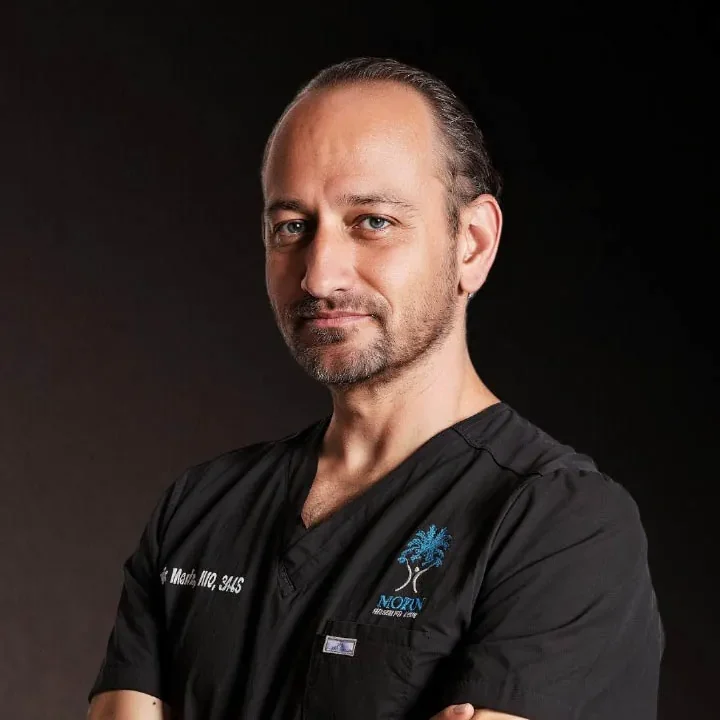Table of Contents
- Educate Yourself About Teenage Gynecomastia
- Is It Gynecomastia or Pseudogynecomastia?
- Give Gynecomastia Time to Go Away on Its Own
- Stop Any Behaviors That May Be Causing Gynecomastia
- See Your Regular Doctor to Check for Underlying Illness
- Explore Gynecomastia Treatment Options
- Educate Your Parents About Male Breast Reduction Surgery
- Make a List of Side Effects and Gynecomastia Complaints
- If Your Parents Say Yes to Male Breast Reduction Surgery
- What if Parents Say No to Male Breast Reduction Surgery?
As a teenage boy going through puberty, you may have a lot on your mind and that include teenage Gynecomastia. Your body is changing, hair is growing in places it never did before, and your voice is deepening. Some boys find it difficult to navigate puberty because of the psychological changes that occur. You are beginning to experience a sexual awakening and fitting in with peers, which is never easy, is more important than it ever was before.
As if these issues weren’t enough to tackle for one person, when you experience gynecomastia – the excess growth of male breast tissue – these common issues of puberty become compounded.
For young women going through puberty, breast growth is a normal aspect of maturity as she bridges the gap between childhood and adulthood. For young men who experience breast growth, the appearance of mammary glands can cause overwhelming embarrassment and shame.
Not only is your body changing, but having male breasts as a teen makes you feel different than all the other boys in your same age group. You may avoid asking out a romantic interest because you fear rejection due to your overactive mammary glands. And when it comes to fitting in, having male breasts can make peer-related interactions particularly difficult.
All hope is not lost, however. If you are a young boy who has developed female-like breasts during puberty, treatment is available. Male breast reduction surgery could help you feel like a normal young man again as you traverse into male adulthood.
There is one hurdle you will have to overcome before you can sign up for treatment. If you are under the age of eighteen, you need your parent’s permission before undergoing such a serious and life-changing surgery. Your job, as a teen experiencing gynecomastia, is to convince your parents that male breast reduction surgery is necessary. Here are some pointers to help you do just that.
Educate Yourself About Teenage Gynecomastia
In order to convince your parents that gynecomastia surgery is necessary, it helps if you become knowledgeable about male gyno and the various treatments available.
First of all, you should know that excessive male breast tissue in boys is quite common. In fact, over half of all men will experience this embarrassing condition at some point in their lives. Gynecomastia can affect babies directly out of the womb and older men as they reach adulthood and testosterone declines.

A big question you need to ask yourself when you have gynecomastia is: What type of male gyno do you have?
There are several types of gynecomastia that are characterized by their level of severity. But there is one type that isn’t gynecomastia at all. Its name is pseudogynecomastia. Let’s explore that type now.
Read our article: Types and Grades of Gynecomastia
Is It Gynecomastia or Pseudogynecomastia?
As we have mentioned, gynecomastia is marked by female breasts in otherwise healthy boys. The male breast tissue is composed of glandular growth and fatty tissue, much like female breasts are made of the same things.
Then there is pseudogynecomastia, which is composed of fatty tissue only. If you are obese or morbidly obese, the breasts you see when you look down or stare in a mirror are actually bags of fat. Losing weight could cause your chest to flatten, alleviating the need for treatment entirely. How do you know if you have gynecomastia or pseudogynecomastia? A self-test can give you a temporary diagnosis of your condition before you approach gynecomastia doctors for an official prognosis. To conduct a self-test, feel under the breast tissue around the nipple region. If you suffer from true gynecomastia, you should feel a flat disk of firm tissue. That tissue is excessive glandular growth. Unless it shrinks on its own, the only way to get rid of the tissue is with male breast reduction surgery.

If you don’t feel any firm tissue, your problem may be caused solely by fat tissue. If losing weight fails to return your chest to a flatter, more masculine shape, surgery can still help. Gynecomastia doctors use liposuction to remove fatty tissue from the chest. In some cases, excess skin can also be removed to give you the flat, masculine chest you want.
Give Gynecomastia Time to Go Away on Its Own
Here is another fact about gynecomastia you should know: For some young men, gyno will diminish on its own within six months to two years. That’s good news if your breasts have only recently grown. For men aged 12 to 16, fluctuations in hormones may soon level out. When that happens, the male breast tissue will shrink, helping your chest return to normal, just like all the other boys your age.
The fact that gynecomastia during puberty does go away on its own in some cases is important for you to understand. If you were to see a gynecomastia specialist, that doctor would tell you to wait up to two years to determine if your case warrants surgery.
While two years seems like an eternity, at least it’ll give you time to research gynecomastia and gather the facts so you can convince your parents that male breast reduction surgery is necessary when the time comes.
Stop Any Behaviors That May Be Causing Gynecomastia
You may be able to speed the time in shrinking the glandular tissue that is causing your problem by stopping any behaviors that contribute to gynecomastia. Illegal drugs and excessive steroid use are two main culprits that can cause excessive male breast tissue in young boys. Gynecomastia doctors will want you to try everything possible to reverse the glandular tissue before resorting to surgery. Just saying no to drugs, including steroids, is one way to help your problem go away on its own.
Read our article: Smoking Weed and Gynecomastia
Some medications can cause the glandular tissue in the chest to grow beyond normal levels as well. If you are taking any medications, including those for anxiety, tell your general practitioner about your issue. You may find that stopping the medicine or switching medications at your doctor’s behest can lead to a reversal of the male breast tissue.
See Your Regular Doctor to Check for Underlying Illness
Gynecomastia in young boys can also be caused by an underlying illness. Liver disease, kidney disease, and male breast cancer (though rare) could be causing your chest to expand beyond what is considered normal. Before you try and convince your parents to let you have male breast reduction surgery, make sure it’s not some other illness that is causing your glandular growth to grow.
If you suffer from gynecomastia and wish to get a consultation about gynecomastia treatment in & near Los Angeles, New Windowcontact us to set up a consultation with one of the best gynecomastia surgeons in Los Angeles.
Explore Gynecomastia Treatment Options
While you are waiting to see if the glandular growth will shrink on its own, part of your research should entail making a list of treatment options for gynecomastia.
Gynecomastia doctors have been known to give medications to shrink glandular tissue growth. However, the FDA has not approved any drugs specifically for gynecomastia treatment. The only permanent way to ensure the tissue growth does not return is to undergo male breast reduction surgery.
Educate Your Parents About Male Breast Reduction Surgery
The surgery is outpatient by nature and involves liposuction to remove fatty tissue underneath the skin. In some cases, excess skin will be cut away as well. The excess glandular growth is removed using laparoscopic technology, which is otherwise referred to as robotic surgery. Instead of opening your chest and removing the tissue, which can come with a myriad of complications, laparoscopic male breast reduction surgery involves tiny incisions. Small tools are inserted into the cuts made around your chest, which allows the doctor to robotically remove the tissue while viewing the action on a monitor nearby. A camera with a light attached shows the doctor what’s going on underneath the skin and allows for the safe removal of the glandular tissue while minimizing risks to your health.

Because laparoscopic surgery is used, downtime is minimal, and you have fewer risks of excessive bleeding, infection, and other potential complications that can be associated with more “open” procedures. Scarring is minimized also.
Read our article: Scarring After Gynecomastia Surgery
Make a List of Side Effects and Gynecomastia Complaints
You are now armed with most of what you need to talk your parents into letting you have male breast reduction surgery. There is still one hurdle to overcome.
Most parents will be hesitant to sign their children up for a surgery that is not deemed medically necessary. Unless your male breasts are caused by an underlying illness, any surgery you undergo will be for purely aesthetic reasons. You want to look better and more normal. Your parents may not fully understand the severity of the problem, in other words, so it’s your job to convince them. Make a list of all the hardships you have had to undergo because of your gynecomastia problem. You might mention the fact that you have to avoid wearing certain shirts because your breasts show through, or the fabric causes irritation. The latter can be problematic if you also have puffy nipples along with excessively large breasts.
You may avoid making new friends because you fear being mocked for having breasts as a young boy. Maybe you’ve already experienced some mockery at school or in your neighborhood. Use all of these pain points as fuel to help your parents understand your plight.

Finally, have some scenarios ready that can show your parents how much better your quality of life could be if you had male breast reduction surgery. Examples might include the ease of making new friends. You would feel more confident asking out a romantic interest. And engaging in behaviors like swimming with your shirt off would be a no-brainer without having to worry about looking different than all the other boys your age.
If Your Parents Say Yes to Male Breast Reduction Surgery
You now have many excellent ideas that can help you highlight your problem and convince your parents to let you undergo surgery, provided you have waited a couple of years and stopped all potential behaviors that could have caused your condition. If your parents say yes, the next step is to schedule a consultation with a gynecomastia surgeon.
Schedule a Consultation with a Gynecomastia Surgeon
To find a the best gyno surgeon, search Google for “Help with Gynecomastia Near Me.” Or you can call the Gynecomastia Center of Los Angeles, the home of world-renowned male breast reduction surgeon, Dr. Babak Moeinolmolki, to schedule a consultation.
Read our article: How to Choose a Gynecomastia Surgeon

When you are under the age of eighteen, your parents will need to accompany you to your appointment with a male breast reduction surgeon. The doctor will examine your chest and ask about your medical history. You may have to undergo imaging tests, blood tests, and others, to determine the cause of the excessive glandular growth. If your doctor green lights the surgery, you can schedule and proceed in hopes that you’ll soon have a normal chest for a boosted quality of life.
What if Parents Say No to Male Breast Reduction Surgery?
If your parents turn down your request for surgery, all hope is not lost. Unfortunately, you’ll have to wait until you turn eighteen before you can undergo male breast reduction surgery on your own.
The biggest hurdle to get over at that point will be finding ways to pay for surgery if your parents don’t agree to help you cover the costs. In most cases, health insurance will not help with aesthetic procedures. Insurance may cover the cost if an underlying illness is to blame, but not always.
Keep in mind that gynecomastia surgery insurance is available, which can give you a line of credit for the procedure, allowing you to pay later on once the surgery has been performed. This is a good option for teenagers looking to have surgery and who lack parental financial support.
We hope this has helped you consider ways to talk to your parents when you have gynecomastia and wonder where to turn. If you need more answers, never hesitate to reach out. Call the Gynecomastia Center of Los Angeles to talk to one of our compassionate staff. Dr. Babak Moeinolmolki would be happy to discuss your condition and options for gynecomastia surgery in & near Los Angeles during a private, one-on-one consultation. Be prepared to bring your parents along. When you’re ready, dial +1-310-694-4486.
If it was helpful to you, please leave us a 5star review. It would help our business a lot. Thanks!
Read More :

Dr.Babak Moeinolmolki
LA Cosmetic Surgeon Dr. Moein is board-certified by the American Board of General Surgery.

